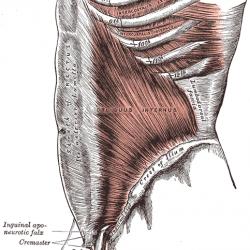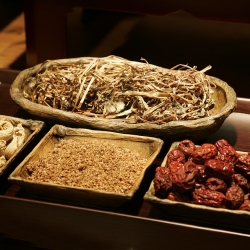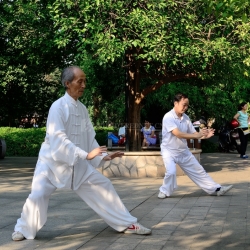Vital Dos and Don'ts After Getting a Professional Teeth Whitening Treatment
Most people are obsessed with whitening their teeth because of the significant improvement it contributes to their physical appearance and self-confidence. It's no wonder that there are all kinds of home teeth whitening systems available in grocery stores and pharmacies today. You have everything from whitening strips, ampoules and charcoal toothpaste to LED teeth whitening appliances.
But apart from home kits, a lot of people also invest in professional teeth whitening in Fort Lauderdale (and other locations). Dentists say in-house treatments are the perfect solution for those who want instantaneous results. In just one session, patients can achieve their desired teeth color and brightness. Moreover, the results last for a much longer time. Typically, professionally whitened teeth can last two years with very minimal discoloration.
So, if you are thinking of getting your teeth whitened at the dentist's office, this is a smart investment in improving the way you look. Before you set up an appointment for this cosmetic dental procedure, it will do you well to know more about it.
Here is a list of dos and don'ts to follow for after-treatment care.
Do:
Switch to a desensitizing toothpaste
If you have sensitive teeth, you may experience a bit of discomfort after a whitening treatment, and you may feel it most when you brush your teeth a day after getting the procedure. To alleviate the slightly unpleasant sensation, use a desensitizing toothpaste. There are different toothpaste brands that offer this formula. Consider getting a couple of small tubes from different brands to see which is more effective in numbing your teeth while brushing.
Drink tepid water more
According to a cosmetic dentist in Fort Lauderdale, drinking more lukewarm water after the treatment is the best way to keep the mouth clean when teeth are feeling some soreness. The temperature of tepid water is just right and won't shock the teeth with their exposed nerve endings due to the peroxide in whitening solutions.
Since your teeth will be somewhat sensitive for the next 48 hours, water is really the best beverage and cleaning solution. Drink it more to control the proliferation of mouth bacteria.
Eat light and soft food
After the treatment, it's best to keep your meals light and soft to avoid teeth sensitivity pain. It is better to stick to soups, soft, leafy vegetables (which actually have a polishing effect for teeth), and non-staining fruits. If possible, mash your food so you won't have to chew much and aggravate your exposed nerves.
Keep up with oral hygiene
After the 48-hour mark, revert to your usual oral care routine, but perhaps take even more time to ensure that you're doing things right for your teeth and gums. Support the results of the procedure by opting for a whitening formula toothpaste. Likewise, make sure to floss to prevent plaque buildup, which is quite unsightly if you have beautifully whitened teeth. And lastly, rinse with an alcohol-free, non-acidic mouthwash.
If your teeth remain to be sensitive and you can't brush like you usually do, try oil pulling. Swish coconut oil for 15 minutes in your mouth to dislodge food debris, and spit it out after. This is a more gentle way to clean your teeth when they're hurting a little due to professional whitening.
Don't:
Breathe with your mouth open
Professional teeth whitening leaves the enamel's pores open, thus exposing nerve endings, which are sensitive to air. Therefore, after the treatment, try not to breathe out of your mouth, especially if it's cold out. This is one of the most effective strategies in managing after-treatment teeth sensitivity.
Smoke
If smoking is your vice, avoid this habit for the next 48 hours. This activity will not only make your teeth quite sensitive to the air movement in and out of your mouth, but the nicotine and tar of tobacco products can stain your teeth as well.
It's worth adding that smoking can leave a mouth feeling dry, which you do not want after the treatment since it's not advised to brush and floss thoroughly for a day or two. A dry mouth is a perfect environment for oral germs and bacteria to proliferate. This can lead to bad breath and even tooth decay.
Consume staining food and beverages
The first 48 hours after the treatment are critical in protecting the results. So, avoid your teeth's exposure to staining food and drinks such as coffee, black tea, red wine, dark colas, dark-colored juice, beets, and others.
Instead, replace them with healthier options that have teeth strengthening and whitening effects such as skim milk, cheese, yogurt, apples, onions, and basil, to name a few.
Gulp down your drinks
Again, if you're experiencing a bit of pain after the procedure, modifying a few activities will help, such as using a straw instead of gulping down beverages. Drinking from a straw will prevent the direct contact of fluids with your freshly whitening teeth. However, place your straw close to the back of your mouth to completely avoid the contact of a cold or warm beverage with your sensitive teeth.
Brush your teeth vigorously
Brushing your teeth too hard always does more harm than good. If you do so after getting a professional teeth whitening treatment, you can expect increased sensitivity and even enamel damage. After taking it easy with the brushing a day or two after the procedure, take your time brushing your teeth and be gentle. Nice and slow does the trick.
You may also want to consider changing your toothbrush to a soft-bristled one in the meantime. Some people switch to a baby toothbrush to make sure that they're never brushing too hard and scratching their teeth's surface.
Professional teeth whitening is generally a pain-free procedure. However, some people do experience an unpleasant sensation after. Fortunately, this is easy enough to manage if you observe the dos and don'ts shared above, and by following the other instructions of your dentist.
If discomfort persists, set an appointment with your dentist again. You're likely more sensitive than you know, and your body's reacting to the bleaching agent in a more aggressive way.
More to Read:
Previous Posts:







